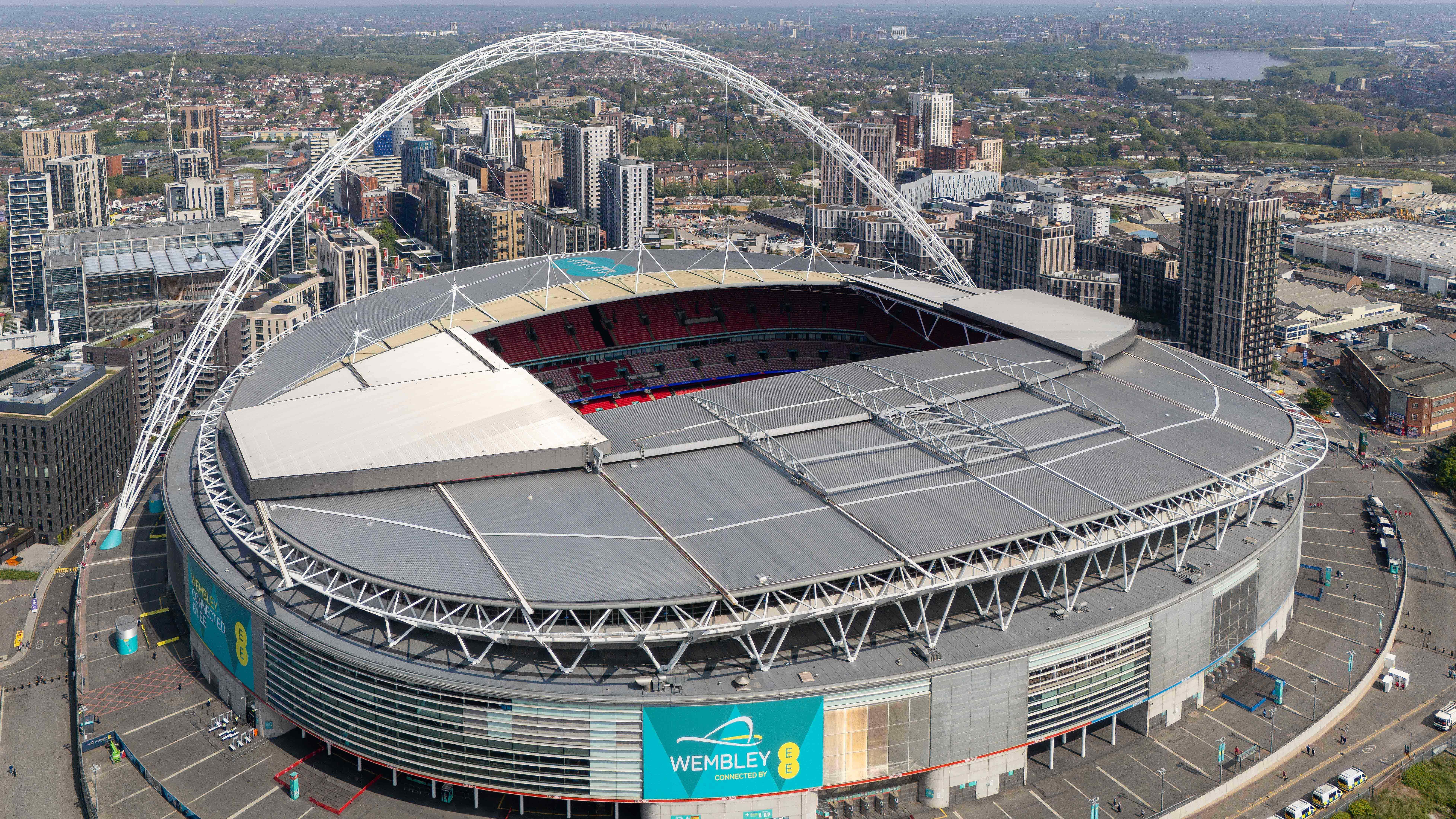Eric Cantona: "I didn’t hit the Palace fan strong enough. I should have hit him harder"
In 2008, Manchester United legend Eric Cantona spilled the beans on his career to FFT, including his departure from Leeds, his acting and that night at Selhurst...
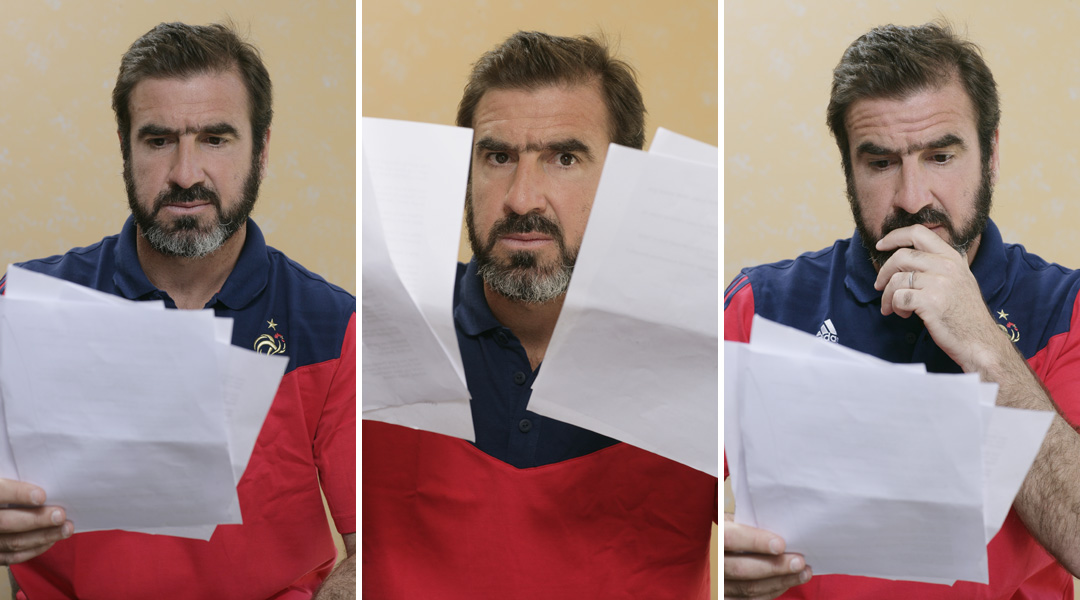
The best features, fun and footballing quizzes, straight to your inbox every week.
You are now subscribed
Your newsletter sign-up was successful
Want to add more newsletters?

Five times a week
FourFourTwo Daily
Fantastic football content straight to your inbox! From the latest transfer news, quizzes, videos, features and interviews with the biggest names in the game, plus lots more.

Once a week
...And it’s LIVE!
Sign up to our FREE live football newsletter, tracking all of the biggest games available to watch on the device of your choice. Never miss a kick-off!
Join the club
Get full access to premium articles, exclusive features and a growing list of member rewards.
What stands out most from your time growing up in Marseille? Were you a happy child or were you always frowning then too?
Steven Price, Ashton-on-Mersey
I was a happy child. We had a strong, close family, which gives you the best education you can get. We were working-class and satisfied with the small things in life. We were polite and always said please and thank you. We were respectful to others and enjoyed life. We sang, smiled and loved. We were immigrants, Mediterranean people. My father came from Italy, my mother from Barcelona.
I was there when I was a child to see my grandfather. I was 10 and liked it very much. He came to France after the Spanish Civil War. He was not allowed to return for 15 years under the Franco regime. When I finished in Manchester I went to live in Barcelona for three years, to relive those childhood memories. To read and live. I liked Barcelona. [FFT: Have you read Homage to Catalonia by George Orwell?] No, but I would like to. Can you send it to me? Now, I am in Marseille, a football city where OM [Olympique Marseille, another of Cantona’s former teams] is like a religion. It’s a cosmopolitan, passionate city and the people live for football.
This interview has been republished as part of Eric Cantona week, celebrating 30 years since he arrived in English football
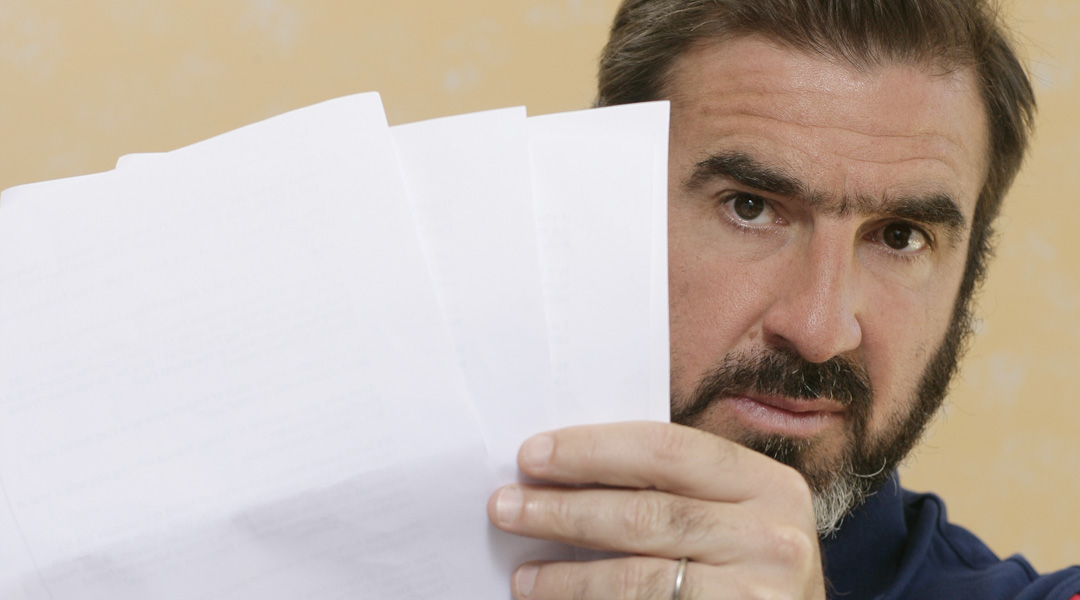
Who was crazier: you or Guy Roux? And what’s your favourite memory of your old manager?
Tommy Rogers, Essex
I left my family in Marseille to go to Auxerre, which was 600 kilometres away. I was just 15. For us young players, Guy Roux was like a father. I liked him and respected him. In some clubs it is not so close, some coaches are not so close to their players, but Guy Roux made sure that Auxerre was like a big family. If I had moved to another club it may have been difficult. But at Auxerre I found my family.
Guy Roux was like a father. I liked him and respected him. In some clubs it is not so close
What motivated you as a player? Money? Success? Glory?
Michael Clarke, Huddersfield
Success and glory: what’s the difference? [Long pause] I think I retired so young because I wanted to improve every time, to be a better player. For myself and the team. To win trophies. To have a feeling of improving. When I retired, I felt that I couldn’t improve any more. And I lost the passion at the same time. The passion comes with the motivation of improving. If you lose the passion, you lose the motivation.
Money? No. If someone asked you to pay £100 to play in an FA Cup final would you pay or not? So it was a dream for me to play because I did not have to pay. We were paid, but I would have played for nothing. There is lots of money involved in football and the players take their share, which is normal. But it is not money that motivates, it is a dream. The atmosphere is special for the players because we can feel that the fans make the sacrifices to be in the stadium. We can feel that football is in the blood of the fans.
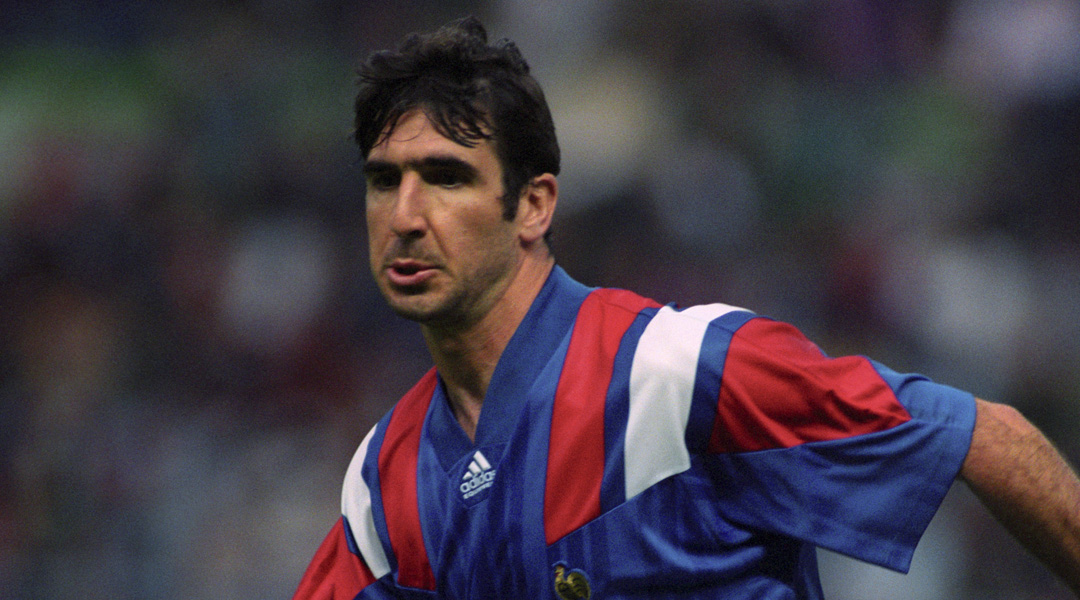
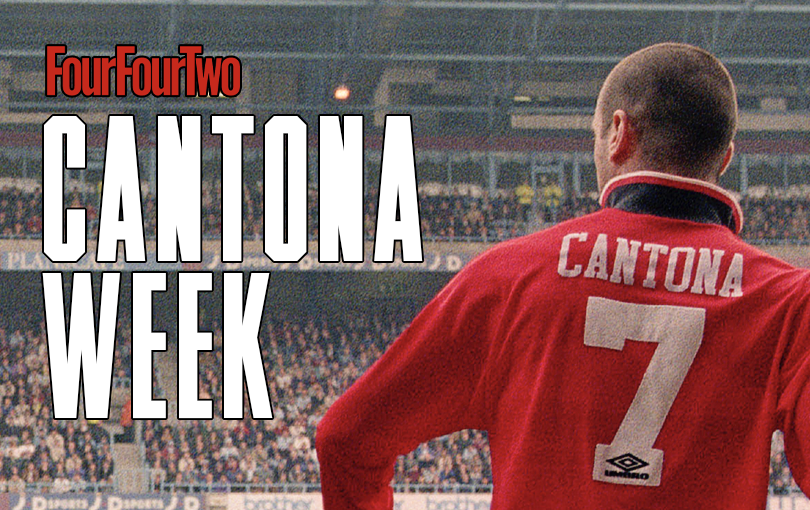
7 DAYS OF KING ERIC Cantona week on FourFourTwo
In 1993, against Bulgaria, David Ginola’s misplaced pass to you gave the ball away and Kostadinov’s goal stopped France qualifying for USA 94. How far do you think you would have progressed at the World Cup had you made it?
Emmet, Northern Ireland
It’s a very bad memory because we did not lose a game until we had three to go. First, we played in Sweden; if we’d won, we would have qualified, but we drew after leading 1-0 – they equalised 10 minutes from the end. So we had two more games, against Israel and Bulgaria. We beat Israel 4-0 away, but lost 3-2 to Bulgaria at home. If we had drawn, we would have gone through. We were 1-0 up and I scored the goal. They scored the winning goal in the last seconds.
The best features, fun and footballing quizzes, straight to your inbox every week.
Bulgaria and Sweden qualified, and both of them reached the semi-finals of the World Cup. France could have done at least as well as they did. We had the best team, but we didn’t really handle the situation well, despite our players having a lot of experience – because even with experience, you can make a mistake. But you have to learn from mistakes to improve, both in football and in your life.
Do you prefer a nice glass of French wine or a cold British pint? What about snails or roast beef?
Ben Francis, Southampton
Snail? Ah, escargot. I like to taste local things, to test them. When I go to Spain I take a Spanish beer or wine. When I go to Brazil I take a Brazilian beer or wine. When I was in England I took an English beer. But with the French, wine. Here in the south of France I take a rosé, especially in the summer. It’s cold [smiles].
What was your reaction to Trevor Francis offering you only a trial at Sheffield Wednesday?
Ben Francis, Southampton
I was a France international and Sheffield Wednesday wanted more time to decide about me. That was not a very good way to go about things
He didn’t invite me for a trial. I was there for a week and I thought I was there to sign. My lawyer was there and he spoke to try and find a way with the contract. I trained and played in a friendly game. We won 4-3. I scored three goals. After one week, he asked me to spend one more week on trial. There weren’t a lot of foreigners in England then, maybe some from the north of Europe but not many from the south. Maybe they were suspicious, but I was a France international and Sheffield Wednesday wanted more time to decide about me. That was not a very good way to go about things.
We’ve heard the rumours but it’s never really been answered properly – why did you leave Leeds? Did you fall out with any players or just Howard Wilkinson? Were you looking for a move before the fabled phone call between Fergie and Wilko?
Joe Strafford, Sheffield
I had a bad relationship with the manager, Wilkinson. We didn’t have the same views on football. I am more like a Manchester footballer. At Leeds, football was played the old way – I think you say kick and then rush. But it was very important to play for Leeds at first because I learned a lot with this kind of football. And we had success. But if I don’t feel the environment is good, I don’t want to be there. I need to feel good.
Maybe that’s why I had problems before. Maybe the atmosphere at a club wasn’t how I dreamed it would be. I needed time or I gave up or I tried to find words to explain what I wanted. It’s like with a woman. Sometimes you can’t find love. Sometimes you can, but it’s still not right. It’s good to be in love, but you want more, you want to give, you want to receive. Sometimes that doesn’t happen. I’m not sure that I would like to be with a woman who is like some of the chairmen I met. They didn’t deserve to be loved.
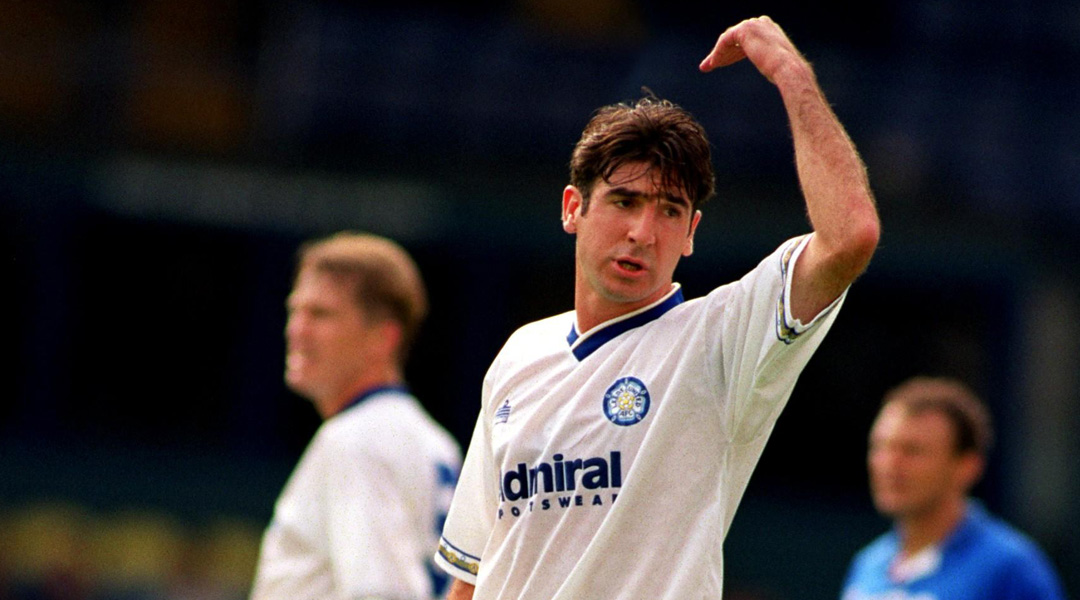
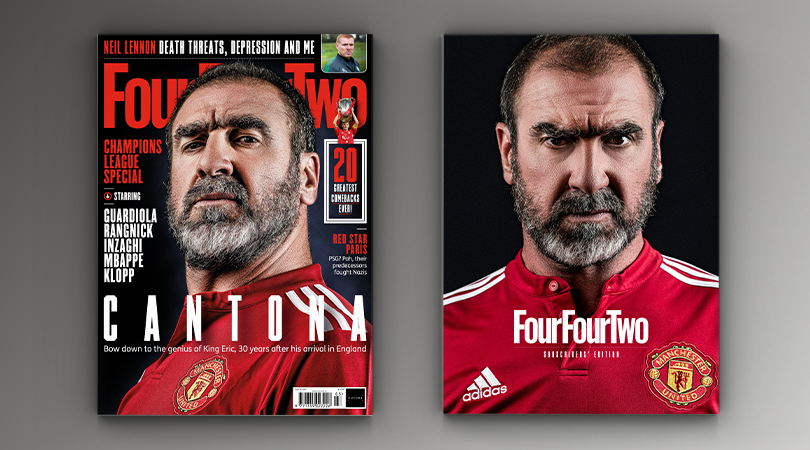
Six months before you joined Manchester United, you played in a 0-0 draw at Old Trafford. You nearly scored with an overhead kick. The whole of the K Stand applauded you – unheard of for a Leeds player. Did that seem weird?
James Ironmonger, London
You dream about these things, so if they happen you feel you lived them before.
Who would have won a verbal joust: Camus or Sartre? And on the pitch?
Steve Love, Paisley
[Looks totally perplexed] What!? [FFT: The philosophers.] Ah, Camus! Or Sartre! [Laughs] I didn’t understand. I thought you meant a camel or a sauterelle [grasshopper]. You know, the little thing which moves a little bit then jumps [makes his hands like a grasshopper as he laughs out loud]. I liked this comparison... But the philosophers? There would be no winner with these kinds of people.
They were open people with their own ideas, but they would listen to the ideas of others. Truth was not everything. You argue to improve or change your point of view. If you think you know the truth about everything then you become very closed. You stay in your own world and go crazy. And then after 10 years you kill yourself. It is important to be open and to have your own point of view, but be open to change.
How much Mancunian culture did you absorb? Did you watch Corrie and listen to The Smiths, Stone Roses or Oasis? Do you miss Manchester?
David Sneyd, Dublin
I didn’t watch this kind of programme, but I liked Oasis. And the others... The Stone Roses. I liked The Smiths before I moved to Manchester. Morrissey, I liked the things he did and the way he did them. Very much. A lot of people in France liked him. I do miss Manchester, a lot. Manchester United is so strong and you can feel that in the city. There’s a lot of energy in Manchester in football, music and culture. Maybe it’s because of the rain. I only lived there when I was a player.
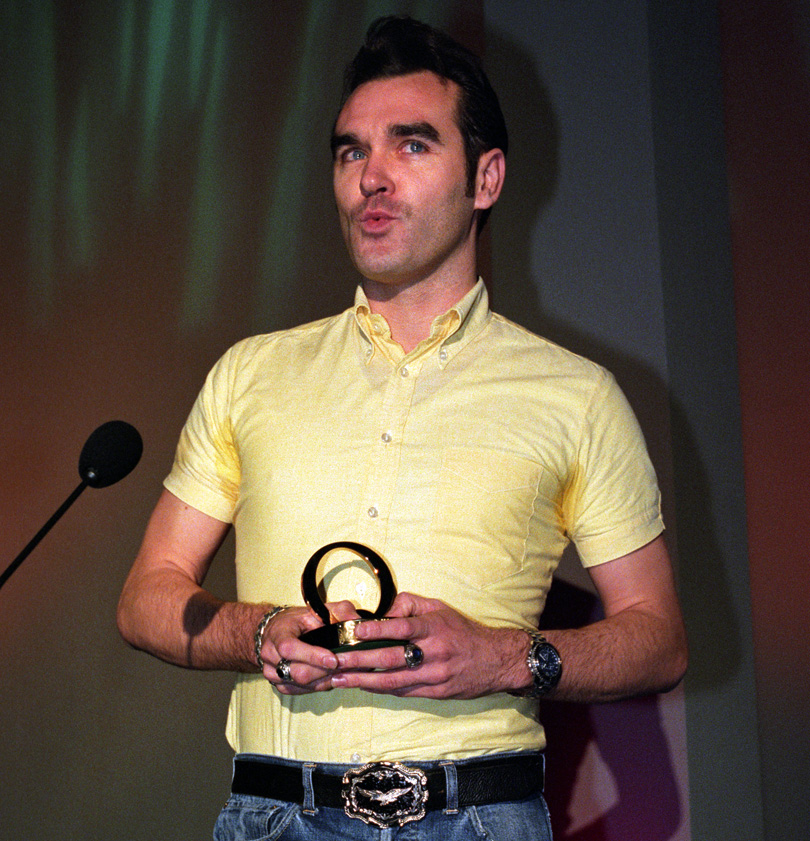
I went back to live there recently for a month [to shoot Finding Eric, a Ken Loach film about a Mancunian postman]. Some cities you have beautiful things to see and visit; in Manchester they have energy. I could feel something, the energy from the history of the city. People try to find things in Manchester, to create things. My friend Claude Boli [Basil’s brother] lived in Manchester at the same time as me. His girlfriend moved there to study the textiles of Africa, the fabrics and the cloth. That was her passion. I thought that they were all the same, but the different tribes have different cloth, different textiles. All of the cloth travelled from Manchester to Liverpool and then by a boat from Liverpool.
When did you come up with the idea of turning your collar up? Were you copying somebody else?
Ian Huff, America
It wasn’t an idea. I put my shirt on. It was a cold day. The collar stayed up so I kept it like that. We won, so it became a habit to play with my collar up.
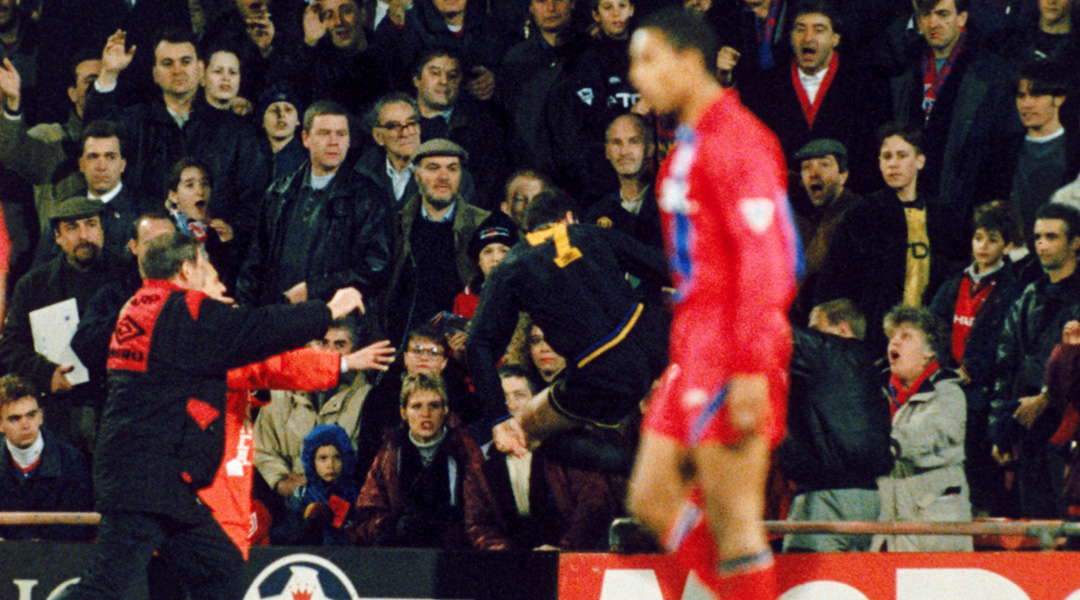
What was going through your mind when you kung-fu kicked that Palace fan? If you’d landed on your feet instead of your backside, what would you have done next?
Richard, South Shields
[Long pause] I did land on my feet, not where you say. That’s why I went to hit him again. But I didn’t hit him strong enough. I should have hit him harder.
What did you feel the first time you saw TV footage of you jumping in the crowd at Selhurst Park?
Lionel Manny, Atlanta, Georgia
I didn’t watch it. Because I knew. All I had was journalists around my house. That’s all I could see. My house was small. They blocked the light. But I played that moment, at Selhurst Park. It was a drama and I was an actor. I do things seriously without taking myself seriously. I think Nike found that side of my character and used it very well. Even when I kicked the fan, it’s because I don’t take myself seriously.
I didn’t think that I had a responsibility not to do it because of who I was. No, I was just a footballer and a man. I don’t care about being some sort of superior person. I just wanted to do whatever I wanted to do. If I want to kick a fan, I do it. I’m not a role model. I’m not a superior teacher, telling you how to behave. I think the more you see, the more you realise that life is a circus.
Did you see the billboard outside Old Trafford when you came back from the ban, saying: ‘We’ll never forget that night at Selhurst… when you buried that 30-yard screamer’?
C Hudson, Longsight M13
Of course I remember it. And I remember the goal – it was against Wimbledon, they played at Selhurst Park too. I liked the words on the poster. And I liked it when I was in court and the fans supported me. They travelled from Manchester, in the middle of the week, to Croydon. I could feel that support and it helped me a lot. The club, also, supported me. So I stayed.
I liked The Smiths before I moved to Manchester. Morrissey, I liked the things he did and the way he did them. Very much
Some say you didn’t perform as well or score goals in big European games. Why do you think that was? Was it just that the Premier League was easier?
Stevie Hudson, Salford
I scored goals in the European Cup. Like I scored goals for France: I played 45 times for France and scored 20 goals. I scored one goal in every two games in Europe. That’s not bad. [Smiles] When you are a striker you can prove yourself with numbers. You can play 10 games, score five goals and assist five goals. You can give an answer very quickly if the press are against you by scoring goals. When you’re a midfielder or defender you can’t do that. If they don’t want to see that you’re a good player, they won’t see it. That’s why I was a striker.
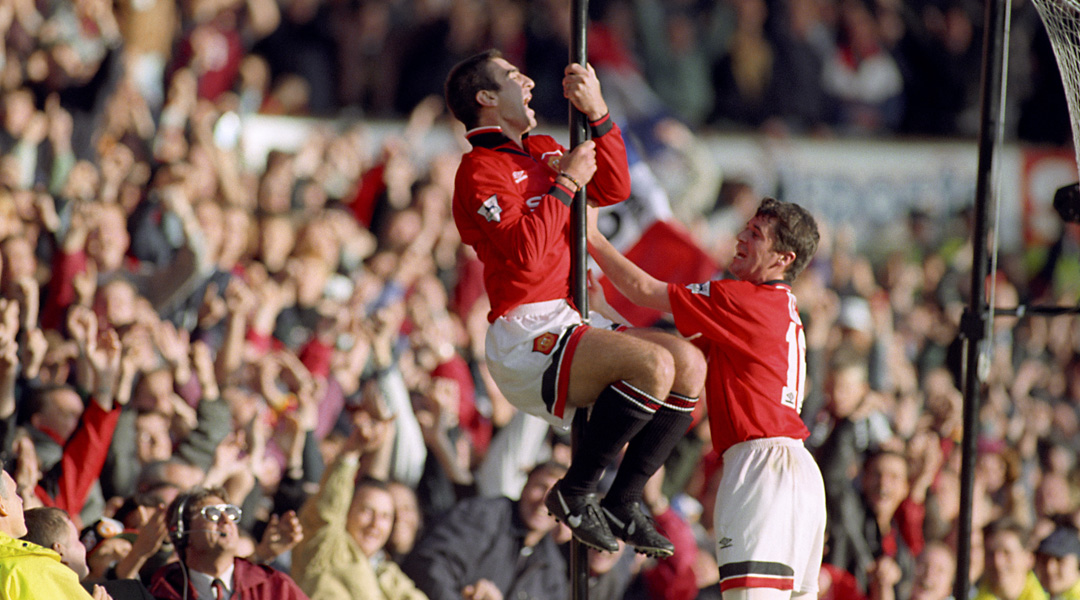
Roy Keane has described you as the best finisher he’s seen in one-on-one situations. Why were you so successful in those situations?
Terry Bentley, Clapham
I worked a lot and I was relaxed. You have to find the timing when the goalkeeper comes towards you. If he’s too close, you don’t have the angle to score a goal. If he’s too far, then you are too far and you won’t be strong enough to be precise. When the goalkeeper is three metres away is good. That’s when you score the goal. When I was young I used to miss. I tried to understand why I scored in training but not in the game. It was about timing. It’s the same for the dribble. If a defender is too close you can’t dribble; if he is too far away then he can anticipate.
If I want to kick a fan, I do it. I’m not a role model. I’m not a superior teacher, telling you how to behave
If you’d had an offer to play one more season at any club in the world after you left Manchester United, where would you have chosen?
Remo, Cheadle
I didn’t want to play anymore. I had lost the passion.
How do you feel when you see what’s happened to Leeds United? What’s gone wrong there?
Nige, Harehills
When O’Leary was there he did a very good job for three or four years – they played in the European Cup semi-final with a very good generation of young players. I couldn’t understand why they sacked him. Since then, the crowd has gone down and down and down. Leeds is a big club. The crowd have the energy for it to be a big club again. But they saw everything destroyed. Leeds will come back.
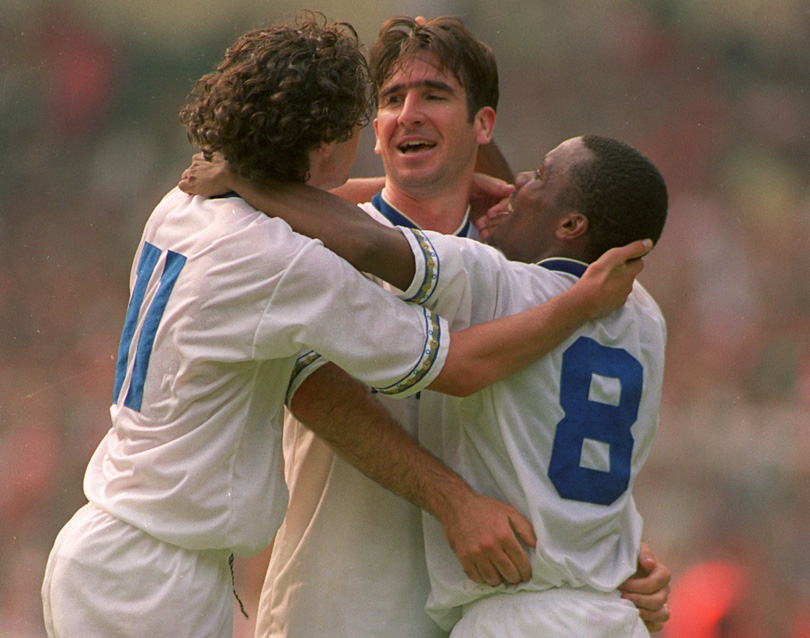
Since the Glazers took over, United have won two League titles and a European Cup. Would you still agree with those who say the Glazers will do more harm than good?
Geoff Foulkes, Bath
I can understand why the supporters are concerned. The philosophy of the club will never change while Alex Ferguson is at the club. After he leaves... that’s what makes me worry. Ferguson is so strong, so popular. He can control everything. For the moment nothing has changed there – apart from in an economic way, and Ferguson does not control the price of the tickets for the fans.
I’m worried about the future. I hope that things will not change. I met the people from FC United when I was in Manchester. They have a great idea. I hope they will become a great club and win the European Cup in 50 years’ time. Every club has to be created at one point. Now, I am interested in the people who create clubs. Which type of people created Manchester United or Manchester City? I’m sure it’s about class.
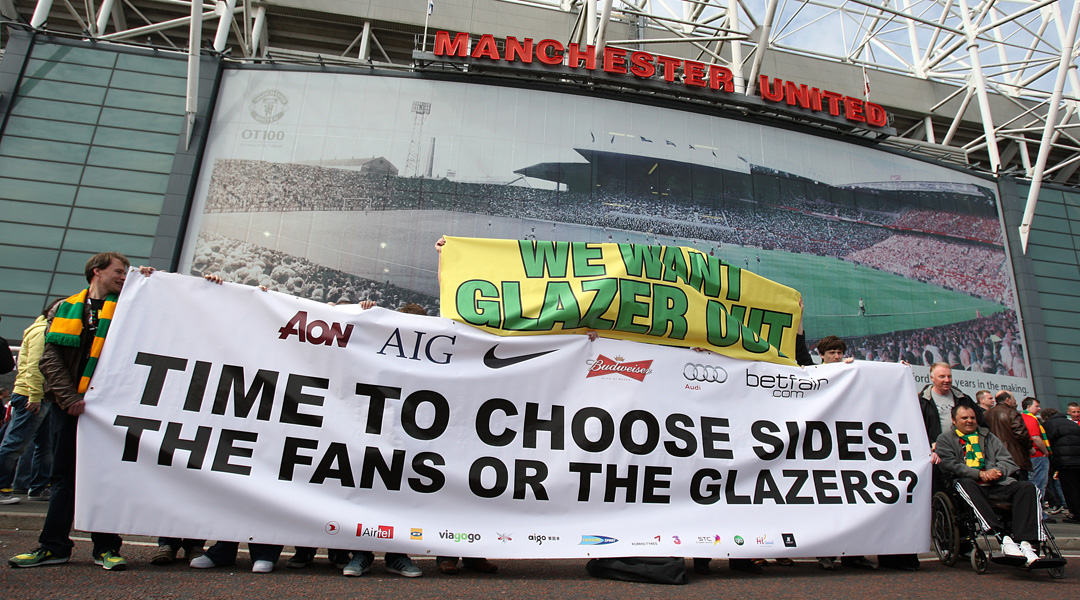
Has acting replaced the buzz you felt while playing football? Will you ever get involved with the game again?
Daniel Gilfillan, Northern Ireland
For me, football and acting are very similar because they are passionate. You get a similar feeling when you are on the pitch and on a set. But the feeling is stronger on a pitch. When I lost that feeling, I stopped playing. I felt like I could not improve. In acting, I work hard to try and improve. I don’t like it when a football coach tells you which way to play. I like to improve myself as a person. Often there are players who have only football as a way of expressing themselves and never develop other interests. And when they no longer play football, they no longer do anything; they no longer exist, or rather they have the sensation of no longer existing.
Did you have as short a temper off the pitch as you did on it?
Dan Nancholas, Falmouth
There’s a fine line between freedom and chaos. To some extent I am an anarchist in that I try for a kind of anarchy. But this is an anarchy of thought, you could say, a liberation of the mind from conventional ways of being and of doing.
Where were you when United won the Champions League in 1999? Was there a tinge of regret that you weren’t out there?
Steve Tindall, Sutton-in-Ashfield
When you see teams win things you want to be involved. But I had been away from football for two years. I was proud and happy. I knew 10 of the players, and Ferguson. I was very happy for him. I would have loved to have been on the pitch in Barcelona, of course.
Who was the greatest French footballer ever? Me
Who was the greatest French footballer ever – Michel Platini or Zinedine Zidane? Or someone else?
Pierre Bocaly, via email
Somebody else. Me.
Who’s better as your No.7 successor: Beckham or Ronaldo?
Jaffa, Droylsden
They are different players, but the influence they have on the game is the same. Beckham can help a team win a game. Ronaldo does the same. He scores more goals than Beckham, but their influence is the same.
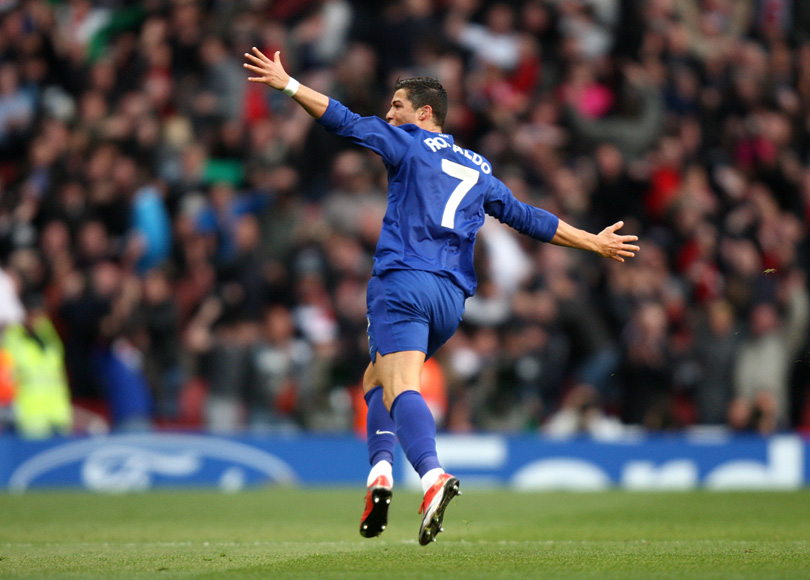
George Best once said: “I would give all the champagne I’ve ever drunk to be playing alongside him [Cantona] in a big European match at Old Trafford.” What would you have given to play alongside George Best?
Wayne Hill, Sydney, Australia
Football is art and Best was an artist. Not every picture is a good one; all art is about trying to explain yourself. Everyone can do that, the man behind the bar, the man sweeping the streets. It is up to those watching to decide if you are successful at your art. But it is all art. You are an artist if you explain yourself with beauty, with particularity.
It is about giving something for people to think about, not to provide answers. It is why I don’t want to say what I would give up. Me, I like artists who make me think. I don’t want to be told what to think. I like to have my own interpretation. If you say to me “Look, this piano is black”, then for me the conversation is over.
This interview was originally published in the November 2008 issue of FourFourTwo. Subscribe to FourFourTwo today and save over a third on shop price
Eric Cantona week on FourFourTwo
• King of the Kop? When Eric Cantona nearly signed for Liverpool
• How Sheffield Wednesday turned down signing Eric Cantona
• Every club Eric Cantona played for: a potted history of the Frenchman's career
• Quiz! Can you name every club Eric Cantona scored against in the Premier League?
• Why did Leeds sell Eric Cantona to Manchester United?
• Year Zero: The making of Eric Cantona (Leeds/Manchester United, 1992/93)
• Does Eric Cantona have a Leeds tattoo? The truth behind the collar
• Ranked! Eric Cantona's 10 best goals
• Quiz! Can you name Eric Cantona's most frequent Manchester United team-mates?
• 7 best pieces of Eric Cantona memorabilia available to buy online
• Quiz! Can you name every club Eric Cantona played against in the Premier League?
• Ranked! The 16 best Premier League players of the 1990s
• Eric Cantona: the 7 most iconic quotes from the man himself
• Quiz! Can you name every player in the Nike Secret Tournament advert?
• Dominant, volatile and hijacked by cliché: why we still love Eric Cantona
• What does Eric Cantona's "seagulls follow the trawler" quote mean? The story behind the speech

Andy Mitten has interviewed the likes of Lionel Messi, Eric Cantona, Sir Alex Ferguson and Diego Maradona for FourFourTwo magazine. He also founded and is editor of United We Stand, the Manchester United fanzine, and contributes to a number of publications, including GQ, the BBC and The Athletic.
 Join The Club
Join The Club










